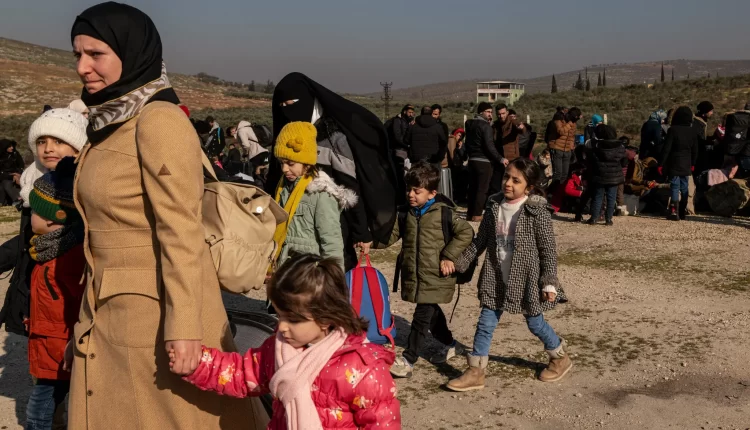Syrians in Turkey uprooted after earthquake – WSJ
QAMISHLI, Syria (North Press) – Many thousands of Syrians have traveled across the Turkish border with Idlib, in northwest Syria, since the Feb. 6 earthquake. Idlib, too, was hard-hit by the earthquake, it is ruled by an al-Qaeda offshoot, and no one knows whether they will be allowed back into Turkey or not.
A Wall Street Journal (WSJ) report quoted a number of Syrians living in Turkey’s disaster zones. Around 3.5 million Syrians live in the country; half of them in the ten provinces affected by the earthquake. Many Syrians have lived and worked in Turkey for over a decade.
Like their Turkish neighbors, they have lost their homes and are reliant on state aid for shelter and food. Yet as humanitarian relief is stretched thin, anti-Syrian sentiment has grown in Turkey.
A Syrian woman quoted by WSJ said local authorities have told her family to be moved to a refugee camp, after years of living and working in Turkey. Syrians allege emergency response teams are discriminating against foreigners. “I saw so many blankets and pillows going to the Turks, but not to any of us,” the same woman told the paper.
Activists have also recorded hate speech directed at Syrians by ordinary Turkish citizens in cities like Gaziantep and Hatay, according to the WSJ. Fake news spread online allege that they have looted shops and homes in the aftermath of the earthquake.
The Turkish government has made a volte-face on the Syrian refugees. Whereas it once welcomed many millions of Syrians into Turkey, it has now attempted to forcefully expel them, as the anti-refugee sentiment in the country has grown. Opposition parties, too, are ramping up their anti-Syrian rhetoric before the general and presidential elections this year.
Nearly two weeks ago, the Turkish government allowed Syrians to temporarily return to their country for up to six months. Yet observers warn that Syrians may not be allowed back. According to the Bab al-Hawa border crossing, which connects Turkey to Idlib, 13,000 Syrians have already left to visit their families in Syria.
“The fact that people are returning is a measure of how desperate they are,” WSJ quotes Emma Sinclair-Webb, the director for Turkey at Human Rights Watch, as saying. “Why would you go back to a place where there are no prospects of work or a sustainable future.”

